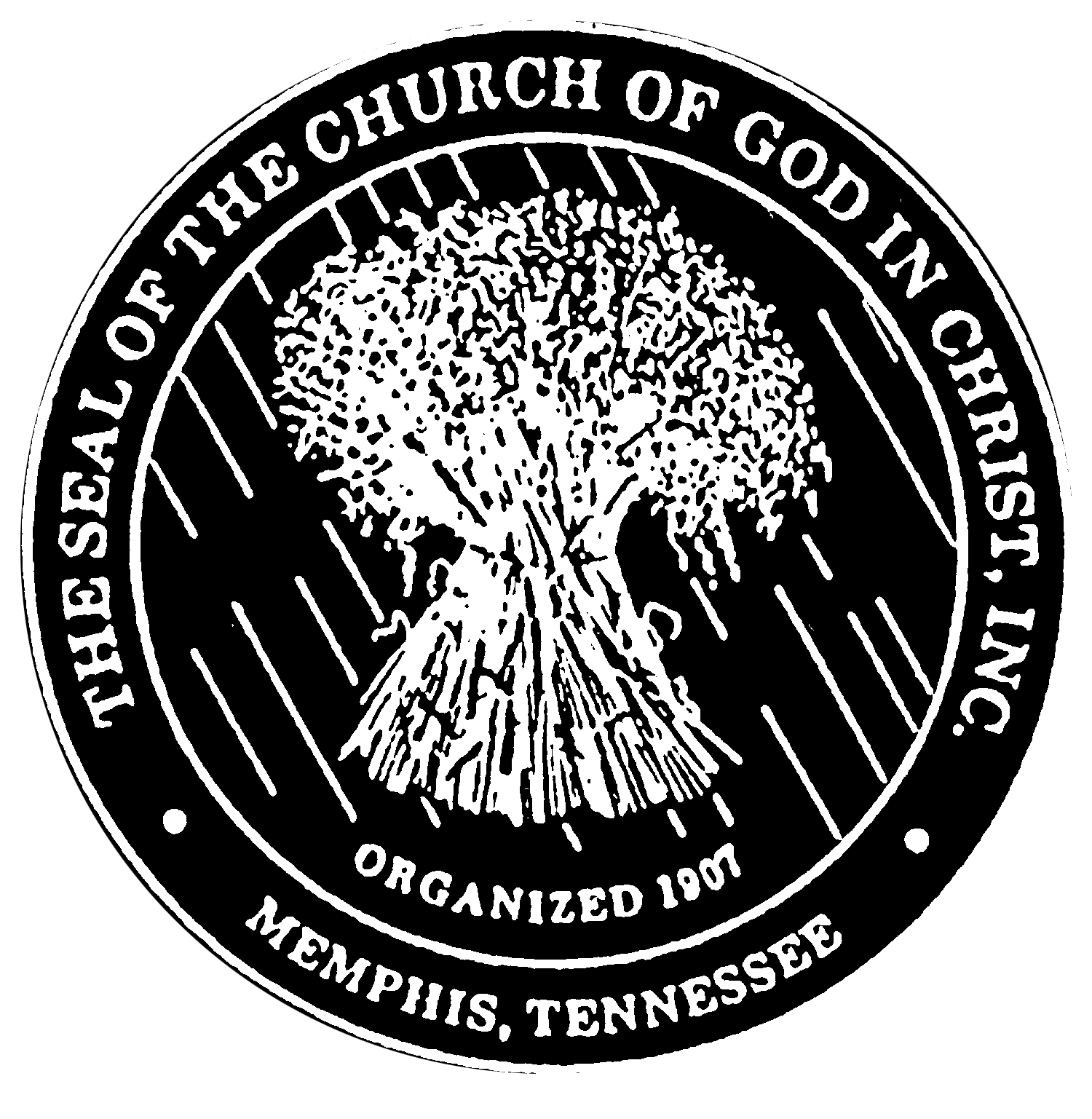Three Biblical Examples of Apostasy: Jude Series #8

The Lord wants us to be able to distinguish false doctrine when we hear it or read it. It’s very important to be able to tell the difference. God has given us this little book in the Bible to help us understand the difference between that which is true and that which is false. It is a book that has to do with the subject of apostasy.
 In the first four verses Jude tells us why he has given us this book. He started to write on the subject of the common salvation, and yet the Holy Spirit impressed him deep within his heart that he was to write them and encourage them to “earnestly contend for the faith which was once for all delivered unto the saints.”
In the first four verses Jude tells us why he has given us this book. He started to write on the subject of the common salvation, and yet the Holy Spirit impressed him deep within his heart that he was to write them and encourage them to “earnestly contend for the faith which was once for all delivered unto the saints.”
The Bible predicted that there would be apostates in the church, and from the days of the New Testament down to these end days in which we live, we have witnessed apostates all through the history of the church.
What is an apostate? An apostate is a teacher who teaches apostate doctrine. Apostate doctrine is doctrine which departs from the teachings of the Bible. “Now the Spirit speaketh expressly, that in the latter times some shall depart from the faith, giving heed to seducing spirits, and doctrines of devils” (1 Timothy 4:1).
We should notice the word, “depart.” The Greek word is the word from which we get our English word, “apostatize.
The Lord predicted that would be one of the great problems the church would face. It surfaced even in the New Testament era because the Scripture says very clearly here that there were already certain men on the scene who had crept into the fellowship of the church unawares.
They pretend to be believers. They pretend to be faithful teachers of the Word of God, but the fact of the matter is they are apostates. They teach doctrine which departs from the faith, the teaching of the Bible. In persecution, the church grows and matures. However, penetration into the Church can bring greater damage to the faith than persecution.
In verses 5-10, Jude teaches about the past and the present. We read in verse 5, “I will therefore put you in remembrance, though you once knew this.” Afterwards, he goes to the Old Testament and examines apostasy in the past. Then, in verse 8, he writes, “Likewise also these filthy dreamers,” dealing with the present.
I. We Need To Remember Unbelief
 “I will therefore put you in remembrance, though you once knew this.” He is going to give some Old Testament illustrations. He is saying, “I’m going to show you something that you already know. I’m going to take you back to your Bibles and show you in the Bible these apostates and how God dealt with them in the Old Testament times.”
“I will therefore put you in remembrance, though you once knew this.” He is going to give some Old Testament illustrations. He is saying, “I’m going to show you something that you already know. I’m going to take you back to your Bibles and show you in the Bible these apostates and how God dealt with them in the Old Testament times.”
Why did he say, “I’m going to put you in remembrance”? The reason is because we have a tendency to forget. Sometimes we need repetition. We need to hear things we already know in order to be reminded and warned of them.
When our daughters were small, we would say, “Now, be sure not to get in the street.” I am sure after hearing a hundred times or more they became tired of it. However, we kept reminding them because we love them.
Then, when our daughters became old enough to drive and were about to leave the home, I would say, “Be careful.” And, to this day, I say to them, “Be careful when you drive.” Why do I say this over and over? Because I love them.
What God does in this little book is take us to the Old Testament and give us three Old Testament examples of apostasy and how they serve as a warning to us. The three examples teach this basic lesson that God always judges apostates. God always judges those who teach doctrine that departs from the faith.
The first example is of the Israelites. We read, “Remember the Israelites.” The example Jude uses here is the account of the children of Israel who were delivered by God from the land of Egypt.
God delivered them through a tremendous demonstration of power. When the Israelites came to the Red Sea, God parted the waters of the Red Sea. They walked across on dry land, right through the Red Sea. God had saved them out of the land of Egypt. But His plan for them was to go into the land of Canaan. God had promised Abraham and the nation of Israel that the land of Canaan was their promised land.
God had given it to them; all they had to do was claim it. But you remember what happened. The Bible says that they came to a little place called Kadesh-Barnea. They got right on the border of the Promised Land. They sent in twelve spies. The twelve spies went in and checked the land out and indeed it was everything God said it was. Then, when they came back and gave their report, they said, “It’s everything God says it is.” But the majority (ten) of those spies said, “There are giants in that land. We can’t take it.”
There were two of those spies—Caleb and Joshua—who said, “We are well able to take this land. God has promised it to us; it’s ours. All we have to do is just claim it by faith. Just believe God.” However, the Bible says that the children of Israel believed the majority report. Rather than having faith in the promises of God, the Bible says they did not believe.
The Israelites had just experienced a miracle of God in the parting of the Red Sea. They had trusted and had seen it with their own eyes. Yet, why couldn’t they believe that if God could part the Red Sea, He could also lead them into the Promised Land?
There are times when we are like the Israelites. We believe God has saved us; He has parted the Red Sea, so to speak. He has redeemed us from this old world of sin. Yet, too many times we don’t trust Him and believe that He’ll keep His promises He makes to us for our daily living and our daily victory.
What happened to the Israelites? God said of that generation that none of the adults except Caleb and Joshua would ever go into the Promised Land. The Bible says God destroyed them who believed not. That means they physically died. In fact, they wandered in that wilderness for forty years. All they had to do was just cross on over into the land. God had promised it to them. They could have claimed the promise, they could have witnessed the wonderful power of God, but instead they apostatized. They departed from the faith.
Look at Hebrews 3:16-18. We read, “For some, when they had heard, did provoke: howbeit not all that came out of Egypt by Moses. (Not everybody apostatized, but some did.) But with whom was he grieved forty years? Was it not with them that had sinned, (unbelief) whose carcasses fell in the wilderness? And to whom sware he that they should not enter into his rest, but to them that believed not?”
How does apostasy begin? Unbelief. The root of apostasy is unbelief. It is amazing to me that two people can be sitting in the same church service and hear the same sermon. Yet, one believes and the other disbelieves; one moves toward God and the other steps back or hardens their heart. The same sun that melts wax hardens cement. The same truth sets one free with faith and hardens the other soul, whose foundation is unbelief.
The Israelites could not enter in because of unbelief. That’s exactly what Jude is saying. He’s saying to keep in mind that God judged those who had departed from God’s promise to them. Sooner or later, God always judges apostasy.
II. We Need To Reflect On The Ungodly
 In verse 6, Jude writes about the angels who departed from the position God had given to them in heaven.
In verse 6, Jude writes about the angels who departed from the position God had given to them in heaven.
The Bible says there was a rebellion of the angels. One of the angels was evidently heaven’s music angel. His name was Lucifer. He was known as the anointed cherub. When he rebelled against God, the Bible says there was a group of angels who rebelled along with him. Revelation 12:4 indicates that a third of the angels joined Lucifer (Satan) in this rebellion against God and they fell.
We read in verse 6, “And the angels which kept not their first estate, but left their own habitation, he hath reserved in everlasting chains under darkness unto the judgment of the great day.”
Jude states that these angels did not maintain the lofty position God had given them. They abandoned that position where God had placed them. Therefore, God has reserved these angels in chains of darkness.
It seems that there are two categories of fallen angels. There is one category of fallen angels that we would say are the unchained fallen angels. We would call them, demons.
When Jesus was on this earth He encountered demons. The Bible teaches the reality of demons. It is the purpose of demons to occupy human life and to do the work of Satan in the lives of people. If you are a born-again child of God, I believe it’s very clear in Scripture that you cannot be possessed of demons. But it is possible for those who are unsaved to be possessed of demons. It is possible for those who are saved to be oppressed by demons.
Jude also indicates there is another category—the chained demons. They are the fallen angels that are in chains. In 2 Peter 2:4, we read, “For if God spared not the angels that sinned, but cast them down to hell (the word translated hell there is the word, Tartarus, which is a special prison house of fallen demons), and delivered them into chains of darkness, to be reserved unto judgment.”
In 1 Peter 3:19, Jesus went to preach to those demons one time. After, Jesus, was crucified we read, “By which also He went and preached unto the spirits in prison. Which sometime were disobedient, when once the longsuffering of God waited in the days of Noah.”
Peter does not mean that Jesus went down there and preached in order for them to be saved. He means Jesus went down there and made a proclamation to them. When Jesus came, all of the demons of hell arrayed themselves against Him, trying to keep Him from going to the cross.
The demons did try to manipulate to get Him on the cross. When He was on the cross, they thought they had Him when they killed Him, but the devil walked right into the Lord’s trap. When Jesus died on the cross, that was the victory that ultimately assures our victory and eternal victory over all the powers of the devil and the evil ones.
After His death on the cross, the Lord Jesus went to the prison and preached to those spirits in hell and said, “Demons, your plan didn’t work. Three days from now I’m coming out and I’m alive forevermore.”
There are angels that have sinned against the position God gave them. They fell from heaven; they abandoned their heavenly state. Why? The Bible indicates in Isaiah chapter 14 that it was because of pride. The devil wasn’t satisfied just to be the anointed cherub. He wanted to be God Himself. He wanted to sit on the throne of God Himself. It was because of pride that they fell.
Next, Jude indicates the chained demons did something very strange and unnatural. In verse 7, we read, “Even as Sodom and Gomorrah…giving themselves over to fornication, and going after strange flesh.” Notice the connection in verses 6 and 7. The indication is that what these chained demons did was as something that took place in Sodom and Gomorrah. He says they went after strange flesh.
Jude seems to be taking us back to Genesis chapter 6. In Genesis 6:1, Moses, the author, takes us back to the time when men began to multiply on the face of the earth. In Genesis 6:2, we read “the sons of God saw the daughters of men that they were fair; and they took them wives of all that they chose.”
Then God makes a pronouncement, “My Spirit shall not always strive with man” (Genesis 6:3). In Genesis 6:4-5, we learn that there were giants in the earth in those days and the wickedness of man was great on the earth.
There are two basic views about these verses. One view believes that the reference in verse 2, “sons of God,” is to the godly line of Seth, and daughters of men refers to the ungodly line of Cain.
The other view is an abnormal manifestation of demon powers who incarnated themselves, so to speak, in human flesh and engaged in sexual immorality. It was the kind that was an extremely perverted kind, and the result was a giant race—a demon race.
We cannot be dogmatic, but what Jude is trying to say is that God always judged apostates—even the angels are not beyond the judgment of God. He says that there are demons right now in chains reserved under darkness unto the final judgement.
Even the fallen angels are going to be judged. He is saying that God always deals with sin. Nobody gets by with sin. The Israelites sinned; God didn’t let them get by with it. Even the angels that fell from heaven, God didn’t let them get by with it. They were judged.
III. We Need To Refrain From The Unnatural
 Jude now writes about Sodom and Gomorrah. In verse 7, we read, “Even as Sodom and Gomorrah, and the cities about them in like manner, giving themselves over to fornication.”
Jude now writes about Sodom and Gomorrah. In verse 7, we read, “Even as Sodom and Gomorrah, and the cities about them in like manner, giving themselves over to fornication.”
The root word for “fornication” is where we get our word, pornography. Also, there is a preposition in front of it, which intensifies it. It means extensive immorality. It means out-of-the ordinary immorality.
We also read, “and going after strange flesh.” That means different flesh. He says that Sodom and Gomorrah and the destruction that went on there are set forth as an example, suffering the vengeance of eternal fire. These are strong, clear words for any generation.
What was the sin in Sodom and Gomorrah? In Genesis chapter 19, we learn two angels came visiting Lot in Sodom. When those angels came, the men of Sodom surrounded the house and demanded that Lot let his visitors come out in order that they might engage in sexual relations with them. Lot offered his own daughters instead.
Can you imagine, that a place will descend to such immorality and such vileness and such perversion, that here is a man who is a believer, offers his own daughters to a night of sexual immorality?
The lust of the men in Sodom was so strong because they were caught up in a sexual perversion of the most depraved kind. It is a kind of lust, called strange or different flesh. Unnatural flesh. Something that is contrary to nature and is perverted.
We know exactly what kind of sin it was in Sodom and Gomorrah. It is the sin of homosexuality. It is the sin of men having sex with men and women having sex with women. The Bible is very, very clear on these matters. You can’t miss it.
The apostle Paul, in Romans 1:26, shows the depravity to which mankind falls apart from God. We read, “For this cause” (when they turn from the truth; when they apostatize) God gave them up unto vile affections; for even their women did change the natural use into that which is against nature.”
He’s saying that women had sex with women. “And likewise also the men, leaving the natural use of the woman, burned in their lust one toward another; men with men working that which is unseemly.” That’s men having sex with men. Here it is condemned by God. “Receiving in themselves that recompense of their error which was due” (verse 27).
The Word of God is very clear regarding homosexuality. God has stated what happens to a nation that tolerates this kind of behavior. Leviticus 18:15 states, “Thou shalt not lie with mankind as with womankind, it is an abomination.” Leviticus 18:25 says, “And the land is defiled: therefore I do visit the iniquity thereof upon it, and the land itself vomiteth out her inhabitants.”
God is saying that when a nation tolerates this kind of lifestyle, the land itself will vomit the inhabitants thereof out. I want you to know that regardless of what students may hear in a classroom or what they may see on a television program, the Bible teaches that sex with people of the same sex is sin. It is displeasing to God.
A person is not born a homosexual. Homosexuality is a choice. We should not let anybody tell us that this is an acceptable alternative lifestyle. It is not. It is contrary to the teachings of God’s Word. His point is—he says “they are set forth.” The words, set forth, mean that they were exposed openly. It was used of bodies, corpses lying in state. What happened to Sodom and Gomorrah? God rained down fire and brimstone on them. It is God’s illustration that He always punishes sin. There is a hell where sin continues to be punished.
We are in the day some might have called the New Morality. It’s not the new morality. It’s the same kind of thing God has been condemning in the Bible since the Bible has been in existence. Married people cheating on their mates. That’s immorality. That’s not the new morality; that’s the old immorality. People living together without benefit of marriage. That’s immorality. People having sex with people of their own sex; that’s immorality. I remind you that there was someone living in Sodom who knew better. His name was Lot. But I remind you that Lot didn’t even open his mouth. Lot was tolerant. He was a believer, but he was tolerant, and he almost lost his own life while living in Sodom.
You know who came the closest to winning Sodom and getting Sodom right with God? It was Abraham, living in a tent, who was separated unto God, who was praying for them. You don’t win this world condoning the sin of this world. You love the sinner, but you don’t condone their sin.
We read in Genesis 13:12, “Abram settled in the land of Canaan, while Lot settled in the cities of the vicinity of the Jordan and pitched his tent toward Sodom.” While Abram was content to live in a tent, Lot pitched his tent in the direction of Sodom. The scene reminds of Eve and the forbidden fruit in Genesis 3:6. A look becomes a lust. A desire becomes a decision. A choice becomes a chain. A sinner becomes a seducer. Eve shows us the anatomy of a sin.
Now, take a long, hard look at Lot. Lot looked at Sodom, lived in Sodom, led in Sodom, and lost in Sodom. When we get to Genesis 19, Lot was known to “sit in the gates of Sodom.” This is the location where the leaders would meet and plan the affairs of Sodom.
When it came time for God’s judgment to fall upon Sodom and Gomorrah, the two angels had to literally drag Lot’s family out of the city. Yet, Lot lost his wife when she turned to look at the city of Sodom. Lot would also lose his children. In Genesis 19:36-38, we learn that Lot’s two daughters plot to get their father drunk and have sex with him in order to have children. When you read the story, the reader does not sense any regret or remorse from the daughters. What is the lesson? When you raise your children in Sodom, they will live like Sodom.
We need to remember the unbelief, reflect on the ungodly, and refrain from the unnatural.



























